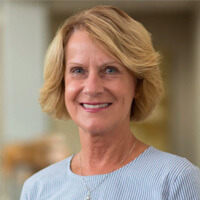Degrees Without Borders: Online Degrees in Occupational Therapy
Healthcare is a large industry in the United States. The Centers for Medicare and Medicaid Services (CMS) reported that healthcare spending in the U.S. swelled to $4.3 trillion in 2021. Demographic and economic trends suggest this industry will only continue to grow within this decade and beyond. Individuals seeking to become healthcare professionals can thus expect to find substantial work opportunities.
Occupational therapy (OT) is an allied health profession in which daily activities of living, or occupations, are pursued for a therapeutic purpose. The ultimate objective of occupational therapy is to improve a patient’s level of independence. To fulfill this objective, OT practitioners help individuals gain or regain the skills necessary to live independently.
OTs typically work with people who have physical, sensory, and cognitive problems. An OT will work with patients to overcome barriers that may impact a patient’s emotional, social and physical needs. In cases of permanent injury or disability, an OT may work with a patient to accept new limitations but practice skills to sustain a good quality of life. People of all backgrounds can benefit from occupational therapy.
Individuals seeking to enter the OT profession often will become occupational therapists or occupational therapy assistants. Occupational therapists often hold a more managerial role in which developing treatment plans is a major responsibility. An occupational therapy assistant often implements a treatment plan and has substantial hands-on experience with patients.
Despite these differences in duties, people working in these two jobs will often closely collaborate. Those seeking a role with a shorter training commitment may become an occupational therapy aide.
Professionals who complete advanced OT degrees may develop specialized expertise and thereby find a larger number of employment opportunities. OT practitioners work in various settings, including hospitals, nursing care facilities, schools, and private practice. Given the variety of skills people need to live independently throughout the human lifespan and anticipated growth in the industry, those working in the OT profession will find ample opportunity to apply their knowledge.
Individuals interested in a career in occupational therapy should read on to learn more about the work of OTs, the job outlook, OT degree programs, and other educational resources available to begin and sustain such a career.
Fast Facts: The Importance of Occupational Therapy
Occupational therapy is an important profession because practitioners provide critical help to their patients, namely the vital skills and support necessary for their patients to achieve a higher level of independence. This greater degree of independence is associated with a higher quality of life.
The depth with which occupational therapists work with their patients distinguishes occupational therapy from many other healthcare professions. OT practitioners equipped with a thorough understanding of their patient’s circumstances and needs can effectively help them enhance their ability to live independently.
Demand for Occupational Therapy
The profession of occupational therapy is experiencing both increasing demand and recognition. Employment of both occupational therapists and OT assistants is expected to grow substantially between 2022 and 2032. The BLS (2023) predicts employment of occupational therapists will grow 12 percent while occupational therapy assistants and aides will grow 23 percent nationally over that decade.
Two factors primarily drive the growth of the OT profession. One factor is the natural attrition of the labor force as existing practitioners retire, become no longer able to work, or move into a different occupation. The other factor is the aging of the American populace. The 2020 US Census found that approximately one in six people were 65 or older. The year 2030 is forecast to mark a demographic turning point for the United States. In that year, all Baby Boomers will be older than 65. As the average age of the American population grows, there will be a growing need for OT professionals to help the elderly improve and maintain their independent living skills.
Occupational Therapy Experts To Know

Dr. Sandra Kletti is an assistant professor in the online occupational therapy assistant program. She was drawn to teach at St. Kate’s due to the university’s vision of educating women who will transform the world. She offers hands-on skills labs to students throughout the United States.
She previously worked as an occupational therapist (OTR) for the Appleton area school district in Wisconsin for over 30 years. Her school experience inspired an interest in mental health which led her to co-author a chapter titled “Pediatric Mental Health” in the book Ways of Living: Intervention Strategies to Enable Participation with another St. Kate’s professor.

Heather Dodd is the program coordinator for the UNC Occupational Therapy Burn Fellowship Program and a mentor within this program. She is passionate about sharing her knowledge and clinical skills with her mentees and supporting therapist-driven research to train new practitioners in all aspects of burn care. She has worked as a clinical specialist for UNC Health Care since 2008.
She completed her bachelor’s degree at East Carolina University and has a master’s degree in occupational therapy from Virginia Commonwealth University.

Dr. Amy Hurst is an associate professor with a joint appointment in the Department of Occupational Therapy at the NYU Steinhardt School of Culture, Education and Human Development and the Tandon School of Engineering Department of Technology, Culture and Society.
Dr. Hurst is also the director of the Ability Project. The Ability Project is dedicated to interdisciplinary research at the intersection between disability and technology. She is passionate about understanding social problems and developing technology to empower those affected. She has previously taught courses in developing assistive technology and a specialized course focused on access and use of assistive technology in historic sites and museums.
Dr. Hurst received her MS and PhD in human-computer interaction from the HCII at Carnegie Mellon and a BS in computer science from the Georgia Institute of Technology.
Online Degrees in Occupational Therapy
Many education providers offer diverse pathways to meet the current and projected demand for OT professionals. Academic programs featuring a variety of degrees from associate to doctoral degrees, is one example. Certificate programs are also popular. A certificate often appeals to working professionals who seek to stay current in their skills, demonstrate their commitment to the OT profession, and need a flexible study option to maintain existing commitments.
Schools use several education delivery models, including on-campus, hybrid, and online programs. Though the trend towards online education is likely to continue, the nature of OT professionals’ work strongly suggests completely online programs will continue to be fairly rare. As with many healthcare professions, new practitioners need to gain hands-on experience working with people in person. Prospective students can thus expect fieldwork, immersive experiences and other in-person learning will continue to be vital aspects of their training.
Below is a sampling of academic programs designed to provide the necessary training to become an occupational therapist or assistant.
Boston University’s Sargent College offers occupational therapists an entirely online advanced post-professional Doctor of Occupational Therapy (PP-OTD) program. The PP-OTD program accepts students with a BS or MS in occupational therapy from an ACOTE or WFOT-accredited degree program. Students may also enroll if they provide a national government recognition document of their occupational therapy program. Students are accepted to begin in January, May, and September.
This program is designed to meet the needs of working professionals with significant existing professional and personal commitments. This program provides a high-quality education defined by both flexibility as well as a close mentoring relationship with a faculty advisor throughout the duration of this program.
To graduate, students must complete level II fieldwork and their doctoral capstone within twenty-four months of completion of the didactic portion of the program. Graduates are eligible to sit for the national certification examination administered by the National Board for Certification in Occupational Therapy.
- Location: Boston, MA
- Accreditation: Accreditation Council for Occupational Therapy Education (ACOTE)
- Expected Time to Completion: Eighteen months
- Estimated Tuition: TBD; contact program for details
Eastern Kentucky University (EKU) offers one of the country’s best online post-professional doctoral degrees in occupational therapy (OTD). This online program allows students to adapt their studies to their schedules. The program focuses on training practitioners seeking to be ethical leaders and providers of occupational therapy services.
EKU offers OTD degree programs to students holding either a bachelor’s or master’s degree. Applicants must be existing licensed, certified occupational therapists. Both program tracks require students to complete a minimum of forty credit hours. Students may transfer up to 12 credits from other accredited programs. Applicants must be certified by the National Board for Certification in Occupational Therapy (NBCOT). Occupational therapy assistants are not eligible to apply.
- Location: Richmond, KY
- Accreditation: Accreditation Council for Occupational Therapy Education (ACOTE)
- Expected Time to Completion: Two years
- Estimated Tuition: $702 per credit
Grand Valley State University offers several degree programs designed to meet the needs of students with varying skill and experience levels. The entry-level doctorate (OTD) program is designed for entry-level or new practitioners. Applicants may have a bachelor’s degree in any field of study. The post-professional doctorate (DrOT) program prepares occupational therapists who are both credentialed and currently practicing. Applicants to the DrOT program must have a bachelor’s degree in OT and a master’s degree in any field of study.
Students may also complete a master of science degree in occupational therapy. This hybrid program may be completed on a full-time or part-time basis. Prospective applicants must complete all prerequisite coursework and have a bachelor’s degree to be eligible for admission.
Grand Valley has a respected reputation in the field of OT education. In recent years one hundred percent of GVSU OT graduates have found employment in the field. In addition, recent graduate cohorts have had an overall pass rate of one hundred percent on the NBCOT board exam.
- Location: Allendale, MI
- Accreditation: Accreditation Council for Occupational Therapy Education (ACOTE)
- Expected Time to Completion: Two to three years
- Estimated Tuition: $963 per credit for DrOT program; $834 per credit for MS program
Houston Community College offers an associate of applied science degree (AAS) program for aspiring occupational therapy assistants. This full-time day program accepts approximately two dozen students in each cohort. Part of the program curriculum is offered in an online format.
The occupational therapist assistant AAS curriculum is designed according to the current vision, norms, and training needs of the occupational therapy profession. The program trains professionals to achieve common occupational therapy objectives such as health promotion, prevention, habilitation, and restoration.
- Location: Houston, TX
- Accreditation: Accreditation Council for Occupational Therapy Education (ACOTE)
- Expected Time to Completion: Complete the information session for details
- Estimated Tuition: $76.50 per credit
Madison Area Technical College
Madison Area Technical College offers a 67-credit associate’s degree in occupational therapy assistance. Students develop the skills to help individuals from diverse client populations improve functionality, quality of life, and independence. Students may attend full or part-time. Courses, both hybrid and in-person, are offered on weekdays. In-person classes are offered on the Madison College Truax campus.
Admission requires several steps. Because Wisconsin law requires background checks for persons who work in caregiving roles and those who have access to people who receive care, applicants must complete a background check. Applicants must also be current in immunizations and have a current healthcare provider CPR certification. Finally, after being accepted, students must also complete a petition process to enroll in core program classes. Students typically must wait up to one year between securing acceptance (pre-program status) and beginning their core courses.
- Location: Madison, WI
- Accreditation: Accreditation Council for Occupational Therapy Education (ACOTE)
- Expected Time to Completion: Two years
- Estimated Tuition: $146.20 per credit for in-state students; $219.30 per credit for non-resident students
New England Institute of Technology
The New England Institute of Technology (NEIT) master of science degree program in occupational therapy is designed to prepare occupational therapists to become leaders in the critical thinking and problem-solving skills necessary for service management in health care and community programs. The curriculum features a combination of classroom, laboratory and fieldwork experiences.
Graduates can sit for the national certification examination for occupational therapy administered by the National Board for Certification in Occupational Therapy (NBCOT). Individuals who pass the exam become occupational therapists, registered (OTR). Many states require licensure rather than certification or registration to practice. Prospective students should research the requirements in the state(s) where they intend to practice. As some elements of a person’s background can disqualify a person from obtaining licensure, it is critical for prospective students to consider their professional options carefully.
- Location: East Greenwich, RI
- Accreditation: Accreditation Council for Occupational Therapy Education (ACOTE)
- Expected Time to Completion: Three years
- Estimated Tuition: $31,075 per academic year
New York University offers multiple programs for occupational therapy professionals. Prospective students should consult the school website for its full listing.
The master of science in occupational therapy, recognized as a top program by US New & World Report, is a full-time, 69 credit hour, two-and-a-half year degree program designed for entry-level professionals to become registered occupational therapists. The curriculum features a variety of fieldwork and research opportunities.
NYU also offers a 90 credit hour, two-tiered degree combining the master of science and doctor of occupational therapy (OTD) degree. Students complete entry-level master’s coursework and then complete the OTD curriculum. Through classwork and fieldwork experience students develop the skills to serve a variety of populations. Upon completion of the master’s curriculum students are eligible to sit for the national certification exam and apply for state licensure. The OTD curriculum trains students in the delivery of evidence-based care. Students also develop a knowledge specialization in areas such as pediatrics, gerontology, mental health or physical rehabilitation.
- Location: New York, NY
- Accreditation: Accreditation Council for Occupational Therapy Education (ACOTE)
- Expected Time to Completion: One to three years, depending on degree
- Estimated Tuition: Total tuition for MS in occupational therapy is $138K; consult individual program descriptions for tuition details
St. Catherine University offers the only post-professional OTD program in Minnesota. This online 35-credit program provides students the knowledge and skills to obtain the highest credential in occupational therapy. The degree is designed for occupational therapists holding a master’s degree in any field who wish to develop skills to become leaders in their work. The curriculum features program development and evaluation courses, evidence-based practice, and teaching and education. Though almost exclusively online, students must attend two on-campus experiences at the beginning and end of their program.
St. Catherine University has a distinguished healthcare education reputation for more than a century. The university’s robust network of clinical and community partners at local, national and international levels enhances students’ and graduates’ professional development and advancement.
- Location: St. Paul, MN
- Accreditation: Institutional accreditation provided by Higher Learning Commission (HLC)
- Expected Time to Completion: Two years
- Estimated Tuition: $759 per credit
Samuel Merritt University (SMU) offers an entry-level doctor of occupational therapy (OTD) degree and a master’s of occupational therapy (MOT) degree. These programs emphasize a whole-person approach to patient care and feature a rigorous curriculum combining basic science and occupation-based practice. SMU uses a cohort learning model; most courses will feature a mix of MOT and OTD students.
The curriculum includes several immersive learning experiences, such as simulation labs and community participant labs. Students interested in applying advanced technology may also apply their research skills and develop specialized knowledge through learning within the Motion Analysis Research Center. OTD students complete a six-month internship in their second year.
- Location: Oakland, CA
- Accreditation: Accreditation Council for Occupational Therapy Education (ACOTE)
- Expected Time to Completion: MOT – seven semesters; OTD – three years
- Estimated Tuition: For MOT, $1,504 per credit for part-time study, $48,981 per year for full-time students; $1,435 per credit for part-time OTD students
The Shenandoah University Division of Occupational Therapy offers entry-level programs using hybrid and online curriculum models. Graduates are trained to be leaders in the field of occupational therapy in varied settings throughout the world. Students learn skills such as evaluation of clients, treatment planning, and evidence-based practice.
Specifically, Shenandoah University offers a 75-credit, 2.5-year master of science (MSOT) degree program in occupational therapy. The curriculum is delivered in a flexible, hybrid format, with more than half of the content delivered online. Students attend classes on campus one day per week; they complete fieldwork experiences on non-campus days during regular working hours.
A variety of other OT degree programs are available. Some of these include the online post-professional occupational therapy doctorate, the entry-level doctorate of occupational therapy program, and the early assurance (EA) pathway program. The EA pathway program is a highly competitive program designed for applicants who meet rigorous high school GPA and exam score requirements. Students may choose an EA program leading to a doctorate (EA-OTD) or master of science (EA-MSOT) degree. Additional details about these many programs can be found on the school website.
- Location: Winchester, VA
- Accreditation: Accreditation Council for Occupational Therapy Education (ACOTE)
- Expected Time to Completion: Varies depending on the program of study
- Estimated Tuition: $968 per credit hour for MSOT program
Additional OT Training Resources
OT professionals seeking to sustain or improve their careers have educational options beyond academic degree programs. One excellent resource is online learning platforms. Online learning platforms typically host content from a variety of education providers. This format provides students the flexibility and affordability they may need to stay current in their skills and seek professional advancement. The platforms below offer access to an immense amount of online content.
The OTPotential site offers a concise overview of many existing advanced occupational therapy certifications. These certifications can increase the marketability of professionals seeking to practice in various niches within occupational therapy. Examples of such niches include assistive technology (ATP), aquatic therapeutic exercise (ATRIC), autism (CAS), brain injury (CBIS), ergonomics assessment (CEAS), and more.
Udemy is an online education platform offering many online classes in many subjects. Featured occupational therapy courses include an introduction and career guide for the OT profession, a beginner course for pre-OTs, medicare enrollment for private practice OTs, and aquatic OT interventions.
edX is another online learning platform featuring a huge number of courses available from more than 250 leading institutions. Courses are available in architecture, biology, business administration, computer science, engineering, environmental science, etc. You can also complete an online bachelor’s or master’s degree using this platform. The site features a course in leadership skills development specific to occupational therapists.


